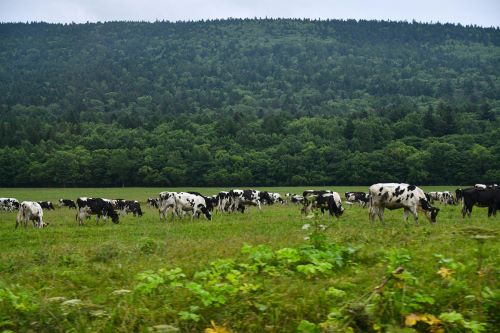
It’s a relatively unknown fact, but Dutch entrepreneurship in Romania is booming. More and more entrepreneurs are running successful businesses here and enjoying their work. For 15 consecutive years, the Netherlands has been the leading investor in Romania, which is remarkable for a small country like the Netherlands. To further stimulate and strengthen mutual trade relations, the Dutch Romanian Network (DRN) was established. In the DRN, Dutch and Belgian entrepreneurs from various sectors exchange experiences, news, and tips about doing business in Romania.
Another important activity of the DRN is bringing together entrepreneurs in expert meetings. On April 25, the DRN organized such a meeting in Venlo, focusing on the agricultural sector. About 100 entrepreneurs, including agricultural farmers, dairy farmers, and fruit growers, attended and were informed and inspired by some successful farmers in Romania. An impressive example is the story of Jan de Boer – how fitting is his name (de Boer means ‘the Farmer). His company has been around for 20 years and is now listed on the stock exchange. In addition to running several large dairy farms, Jan also operates a hotel and a training center in Romania.
One of the main drivers of the DRN is honorary consul Ben Jager. He has an extensive network within various governments and the business community. Under his leadership, significant lobbying work is also carried out, with a notable success being Romania’s recent (partial) accession to the Schengen area.
In the Netherlands, farmers face many restrictions. It is well-known that agricultural entrepreneurs often choose to settle abroad, for instance, in Canada or Denmark. However, Romania is still relatively unknown, which is unfortunate since the country offers numerous opportunities for farmers. There are 10 million hectares of available agricultural land. Moreover, there are opportunities for large international buyers; Friesland Campina, for example, has multiple locations in Romania. It’s no wonder the agricultural sector from the Netherlands and Belgium is the best represented in Romania, followed at some distance by the ICT and Automotive sectors.
Back to the expert meeting, where about twenty entrepreneurs and expats were present, all successfully doing business in Romania. Personally, I found it extraordinarily inspiring to meet these fellow entrepreneurs. I can’t help it; my mind immediately starts looking for commonalities among these very different types of entrepreneurs. What common “label” applies to them? What is the connecting factor? What motivated them to build a life in Romania? What similarities are there in terms of personal experiences as an entrepreneur in Romania?
These questions provided interesting insights. It turns out that remote entrepreneurship doesn’t work. All the entrepreneurs that I spoke to lived and worked in Romania and were operationally involved in their businesses daily. Additionally, all these people had learned the Romanian language. These are two important success factors, which also largely apply to myself. What also struck me was the remarkable improvement in Romanian laws and regulations and the reduction of bureaucracy. When I took my first baby steps in building a business in Romania in 1996, I felt like a true pioneer. Nowadays, setting up a business is a breeze, with a Romanian version of the Chamber of Commerce (the CCIR) and regulations aligned with European standards, and local governments welcoming foreign investors with open arms. And last but not least: the exceptionally high work ethic and involvement of Romanian employees is something everyone I spoke to at the expert meeting confirmed. This might be the biggest connecting factor.
Curious about the next expert meeting? Keep an eye on the DNR website or sign up for the newsletter at www.dutchromaniannetwork.nl.
Looking for reliable software development services?
See how we can help.
- Anneke van der Putten
- Call: +31 (0)30 782 0111
- anneke@netrom.nl
- Ronald Bouwmeister
- Call: +31 (0)30 782 0117
- ronald@netrom.nl